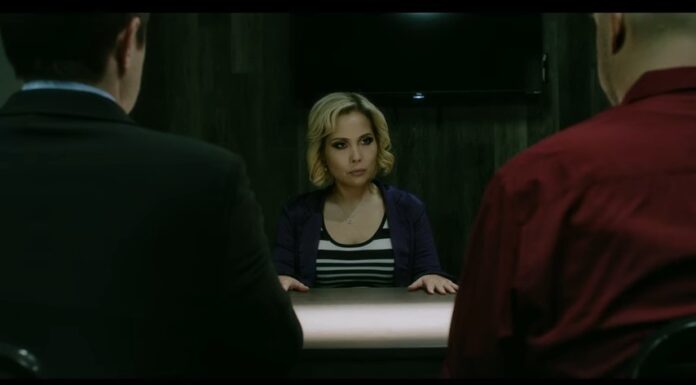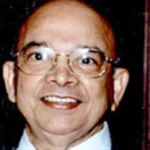Sometimes, the line between reality and illusion can be blurred in ways we never expect. This is exactly what happens in The Interrogation of Anna Goode, a psychological mystery film directed by D.C. Hamilton. The movie starts in a terrifyingly small police interview room where time, identity, and even reality itself seem to change with each word. What starts out as a normal case quickly takes a strange turn when FBI Agent John Savage walks into the room to question Anna Goode. Just a short time later, he is accused of the crime he was looking into. As questions turn into puzzles and the truth plays hide-and-seek, the movie makes people wonder: who really has power?
WHAT HAPPENS IN THE MOVIE?
At the heart of The Interrogation of Anna Goode is a complex triangle involving Anna (played by Brinna Kelly), Detective Marshall (Max Adler), and FBI Agent John Savage (Neil Hopkins). Two gruesome murders—men abducted and dismembered alive—have raised suspicions, and all signs point to Anna. She’s smart, sharp-tongued, and unsettlingly composed. But just when you think you understand her story, the script flips. Anna’s ability to recall vivid details—her vaunted eidetic memory—turns the interrogation into a twisting maze. Then for some reason, Agent Savage switches places and is now the one being investigated. As both men try to figure out Anna’s complicated story and face their own truths, the tension grows. The interview room is more than just a place to be; it’s a battleground for justice, truth and identity.
IS THE INTERROGATION OF ANNA GOODE BASED ON A TRUE STORY?
No, “The Interrogation of Anna Goode” is Not based on a true story. However, it cleverly uses real-life details to pull you into its strange story. The film is an original creation by director D.C. Hamilton and writer-actor Brinna Kelly, whose past collaborations (The Fare and Forever Mine) also explored unusual concepts involving time and perception. While the setting—a police interview room—and the subject matter—murder, suspicion, and psychological games—feel grounded in reality, the story takes artistic liberties that set it apart from true crime.
The movie wastes no time setting the tone. A line from Alice’s Adventures in Wonderland—“It’s no use going back to yesterday, because I was a different person then”—gives viewers a hint that this story is about change and self-discovery. While the plot isn’t taken from any real-life investigation, the film still touches on serious topics like power dynamics, gender roles, and how justice can be interpreted in different way. The film doesn’t just show the chase between hunter and hunted—it uses it to dig into the bigger question of who’s really in control.
The movie’s design—a single-room drama laced with flashbacks and historical allusions—makes it feel like a real psychological study. The movie is set up like a real psychological study; it’s a one-room drama with flashbacks and historical references. But these choices about style are artistic, not based on facts. The crimes, the characters, and the sudden changes in the story are all made up to make people think.
Still, it’s easy to see why some might ask if it’s based on a true story. Interrogation-room thrillers often pull from real cases for inspiration, and the grounded performances and tight writing in The Interrogation of Anna Goode give it an authenticity that feels unsettling. But unlike films inspired by actual events (Zodiac, The Boston Strangler), this one uses fiction to comment on truth—and how slippery it can be.
For those drawn to layered, mind-bending thrillers with a touch of the surreal, this film delivers something fresh while keeping its secrets close.
For more insights, recaps, and updates on The Interrogation of Anna Goode, keep visiting tvacute.com—your source for deep dives into the most intriguing films and series.







